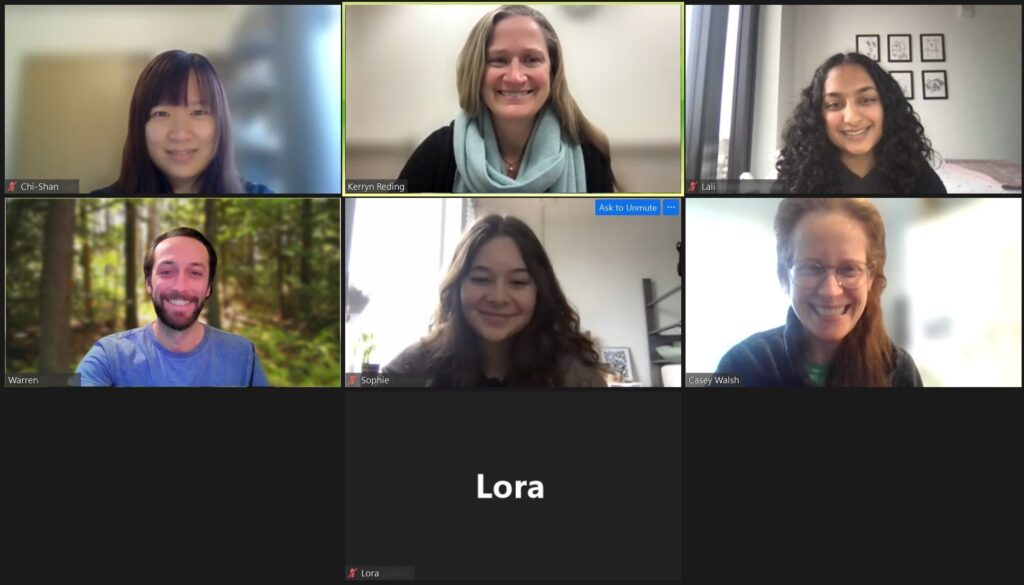I am Casey Walsh, PhD, MSW, a social work clinician and researcher at Fred Hutchinson Cancer Center. In my work with AYA survivors, I have seen the major impact of sleep problems on the lives of young adult survivors. I remember one survivor facing serious effects of sleep problems after finishing treatment. Her sleep troubles left her too tired to hang out with her friends or keep up with her classes. Poor sleep stood out among the many health concerns that come along with surviving cancer – it was causing major ripple effects throughout her life, for her happiness and her health. Sleep problems are reported in up to 50% of AYAs with cancer. Whether it’s being too tired to engage in daily activities, feeling depressed and irritable, or getting sick more frequently, AYA survivors describe the far-reaching effects of poor sleep on mood, memory, and health.
Our team of experts led by Kerryn Reding, PhD, MPH, RN from the University of Washington School of Nursing, is working to develop a digital health intervention to improve sleep in AYA cancer survivors. Specifically, we’re developing a chatbot, which engages in human-like conversation to help support a real person. As a cornerstone of health, the enormous impact that sleep has on daily life informs why improving sleep health for cancer survivors is the shared mission of our work. Dr. Reding’s research focuses on improving the lives of cancer survivors through interventions to improve sleep, increase physical activity, and encourage healthy eating. In my research work at Fred Hutch, I happened to come across a chatbot developed by Dr. Reding’s team to help women improve their sleep after breast cancer.
Knowing how common and how severe sleep difficulties are in AYAs, I thought it would be an incredible resource for AYA cancer survivors. When I reached out to Dr. Reding to discuss this idea, luck would have it that Dr. Reding’s team was already working on exactly that!
Why a chatbot? Well, we know there is a behavioral treatment available that is effective for improving sleep. It’s called CBTi, or cognitive behavioral therapy for insomnia. The challenge with CBTi is that it’s hard to access for the many cancer survivors facing sleep trouble. Many medical providers don’t know about CBTi, and when they do, they probably don’t know of a therapist who is trained to deliver it. We believe a chatbot can share the important parts of this therapy in a way that is easy to access, understand, and put into practice. Importantly, it can be used widely by AYA survivors in need of help with sleep challenges.
We are excited to learn from AYA cancer survivors as we develop this digital tool to improve sleep.
By : Casey Walsh

